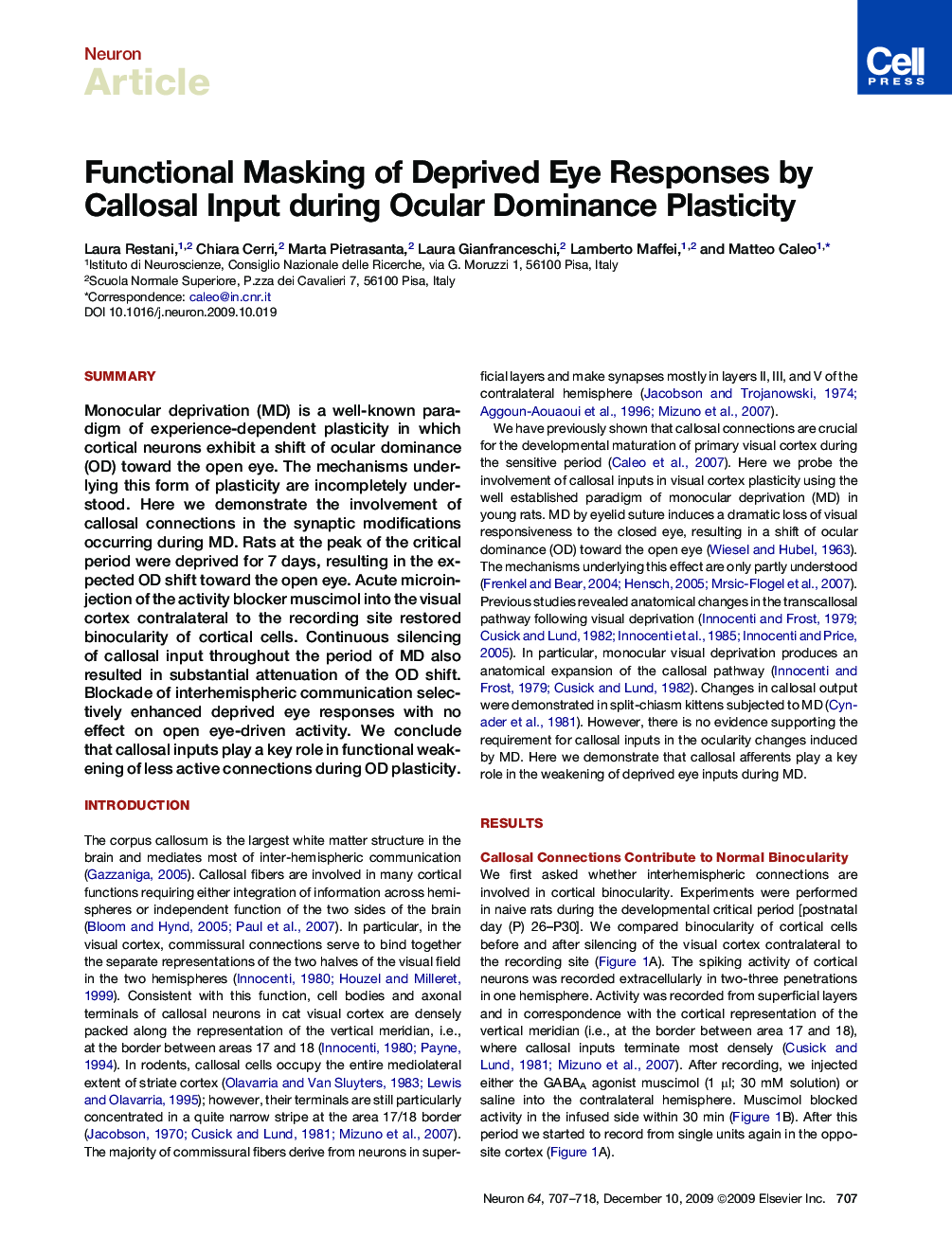| Article ID | Journal | Published Year | Pages | File Type |
|---|---|---|---|---|
| 4321705 | Neuron | 2009 | 12 Pages |
SummaryMonocular deprivation (MD) is a well-known paradigm of experience-dependent plasticity in which cortical neurons exhibit a shift of ocular dominance (OD) toward the open eye. The mechanisms underlying this form of plasticity are incompletely understood. Here we demonstrate the involvement of callosal connections in the synaptic modifications occurring during MD. Rats at the peak of the critical period were deprived for 7 days, resulting in the expected OD shift toward the open eye. Acute microinjection of the activity blocker muscimol into the visual cortex contralateral to the recording site restored binocularity of cortical cells. Continuous silencing of callosal input throughout the period of MD also resulted in substantial attenuation of the OD shift. Blockade of interhemispheric communication selectively enhanced deprived eye responses with no effect on open eye-driven activity. We conclude that callosal inputs play a key role in functional weakening of less active connections during OD plasticity.
